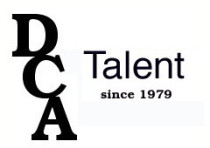A SAMPLE OF THE DCA TALENT PHILOSOPHY
Here's an excerpt from a recent newsletter to clients:
SHHhhhh.....LISTEN TO WHAT THE MARKET TELLS YOU!
As we start to send links, you will receive regular updates of where your materials have been sent. Do not panic if you see that your stuff went somewhere that you don't want to be. Just contact me and explain why and I will adjust the search moving forward.
Just because we send an email does not mean they will like you, nor does it mean they will offer you a job---nor does it mean you are obligated to accept if they do! However, if you're curious why we sent to a particular place, simply contact me for an explanation.
Relax.
We will send out A LOT of emails and links so that we can get a feel for your value on the open market. Although we may think you're the greatest thing to hit the screen since David Letterman, ultimately it will be the marketplace which determines your value. We don't own a TV station and we don't have a job for you. That's why we'll be sending your stuff all over the place.
We like to say, "The market speaks with a voice which is undeniable."
If the nibbles start pouring in for jobs much better than what you already have, then we know we've hit the jackpot. If we only get a few calls for mediocre positions, then the marketplace has spoken.

